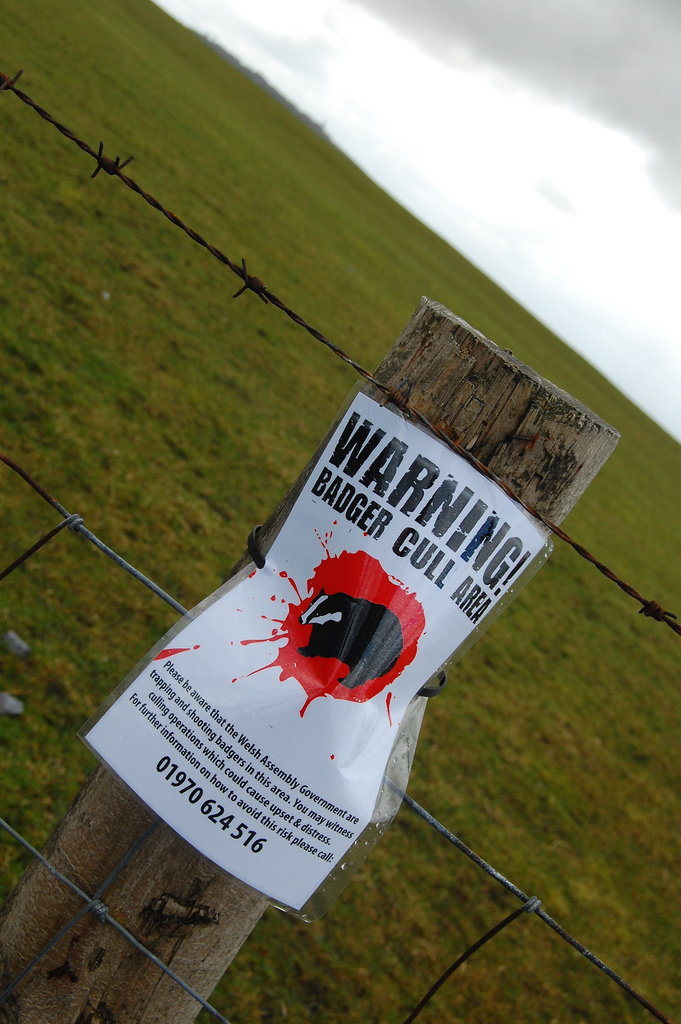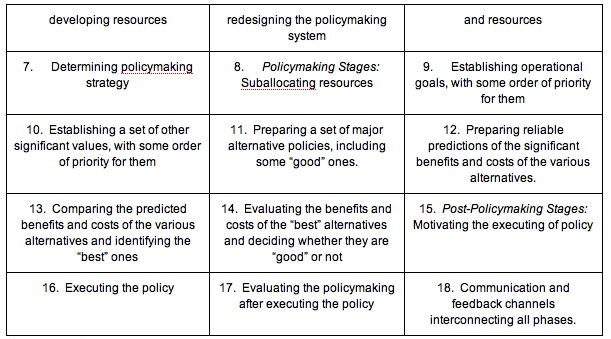
Until summer 2012, the United States of America knew very little about the modern existence and popularity of British boy bands. Groups like One Direction and The Wanted exploded onto airwaves and the Beliebers were able to fanatically devour music created by five boys instead of just one. Little do they know that boy bands like Westlife and Boyzone remained dominant in UK culture while the Backstreet Boys and N’Sync lost appeal here at home.
This is relevant because it is more or less an allegory for the prevalence of UK badger policy that causes a controversy in Parliament each year. Badger issues arise, are followed relentlessly by the public for a few years, and then slip into relative obscurity.
In late September of this year, NPR aired a story about the current climate of badger culling, or slaughtering, operations in England, which is an ongoing political battle that remains under the international radar. The issue at hand is bovine tuberculosis, a respiratory disease found in cattle that can also infect badgers. A diseased cow must be culled in order to not sicken humans or infect other cattle, a process known as a herd breakdown. This is a costly process because the affected farmers must test all other cattle and deal with loss of productivity, while the government has to compensate the cost of culled cattle.
In addition to the cost of culled cattle, European countries do not allow for the import of cattle when a country has a prevalent bovine tuberculosis problem, which causes the UK to lose trade with its most important partners. Due to bovine tuberculosis and presence of mad cow disease, the EU shut off UK beef exports in the early 2000s causing a loss to farmers of about £675 million a year. Some scientists hypothesize that badgers might be able to transmit the disease back to cattle, so the government tolerates badger culling programs. This position has been refuted off and on for forty years. The results of such controversial programs are mixed.
When the Labour Government took power in 1997 following a landslide UK general election, they instituted a five year, £2.14 million study to survey the effects of proactive culling, reactionary culling, and nonculling. Proactive culling entails actively hunting down badgers and culling them. Reactionary culling is killing only in areas when an outbreak occurs. Lastly, nonculling is not killing badgers whatsoever. This country-wide testing program became the policy of the Labour Government, and the results would steer future policy.
The results of the Randomized Badger Culling Trials were decidedly inconclusive with one cull area showing a 23% decrease in herd breakdowns, and another cull area showing a 36% increase in breakdowns. This also did not prove whether badgers could be an active reservoir for bovine tuberculosis or whether the disease remains isolated and can’t spread further once transmitted to badgers.
This inconclusive scientific approach to bovine tuberculosis containment was scrapped when the Conservative Coalition Government took back Parliament in 2010. In place of the initial study emerged a survey and consultation with farmers, unions, and interest groups about the appropriate course to take moving forward. The concerned farming community won the government’s support and proactive culling operations were renewed.
Due to animal welfare laws gaining prominence in the 80s and 90s, the only acceptable means of killing potentially infectious badgers was decided to be trapping them and then shooting them, or to have certified marksmen lethally shoot the creatures. The new cull method is criticized for its detraction from scientific studies by animal rights activists and British celebrities such as Brian May and David Attenborough.
Badger culling policies changed every time a new party takes power, and important information is always excluded from the policymaking process. Since the 1970s, when badger culling operations started, biomedical technology has advanced. New and more efficient tuberculosis tests are available, vaccines are being developed, and farming infrastructure is more structurally sound.
Vaccination is the most effective answer to bovine tuberculosis, but in England there is a greater emphasis on what environmentalists call a “zero-cost, zero-sense policy”. This past summer, the Welsh government took over local badger policies by implementing a vaccination program of 300 badgers instead of a cull. The effectiveness is yet to be known for sure. What is certain is that this pilot project is more scientific and comprehensive than mass shootings of badgers.
How is this policy issue of any importance in the contemporary world dealing with transformational issues such as nuclear weapon attainment, democratic uprisings, financial crisis, and gender equality? The answer is that badger culling policy could hypothetically be any policy.
This particular problem facing the United Kingdom could be any issue confronting any government. Governments need to make informed and effective policy decisions to solve problems, even if it seems small and absurd like badger culling. If a government cannot figure out whether or not to shoot badgers it is just as troubled as one being indecisive about pursuing nuclear weapons. Perhaps the issue at hand is less sinister, but both are indicative of a larger internal conflict. Failed policy in one area affects the government as a whole, whether it loses public support or disrupts the operations of other policymakers.
In 1968, Israeli political scientist Yehezkel Dror postulated that government policy across the world was not equipped to deal with impending nuclear disaster. Policy making was primarily made one of two ways, through extrarational means or incremental change. Extrarational policymaking is a leader “going with their gut” on an issue, or using charisma instead of hard science to solve problems. Dror cites Kennedy handling The Cuban Missile Crisis as an extrarational policy. Incremental change, also known as “muddling through” is a slow policymaking route in which small changes are made in order to reach a common goal, and errors can easily be corrected. The acceptance of gays in the military incrementally changed from no acceptance, to “Don’t Ask Don’t Tell”, to the repeal of DADT in 2010.
Since these methods are oversimplified ways of going about creating and managing a nuclear stockpile, Dror created an 18 step ideal policymaking model to answer problems regarding new technological advances and deadly weapons.
This model is still very applicable to today’s problems because there are paramount issues that cannot be solved by brute force or trial and error. In an era of globalization it is best to rationally look at a problem and see its probable cause and effects on a larger scale. What is true about policy making on trade agreements, affordable medical treatments, microlenders, or culling badgers is true about all policy; it needs to process reality, allocate resources, and be executed properly.
Can governments handle these issues? Sometimes they can, yet the nation that gave its “blood, toil, tears, and sweat” to defeat fascism is currently unable to determine conclusively whether exterminating swaths of badgers is good or bad for tuberculosis control. There needs to be cohesive and effective bovine tuberculosis controls in England that are grounded in science.
Prime Minister David Cameron is facing many issues this year such as maintaining the NHS, preparing the budget, and defining the UK’s role in the EU. The badger issue, while it may seem minutial, has over a hundred thousand critics on the UK government’s own online petition service. All governments have to be able to make informed viable policy. This extends to smaller things such as badgers, because even little problems should be handled with the same care as larger issues in order for policy to be effective.
These issues come in waves, are dealt with, and then forgotten. Just like boy bands. Problem is, the UK cannot seem to satisfy the problem and move on. England will solve its badger culling woes one way or another, and America will have its own minor crisis to handle. It’s just a matter of time before the next wave.
Eric Massak
Political Science ’14
Dror, Y. (1968). Public policymaking reexamined. (pp. xi-219). Bucks: Leonard Hill Books.
May, B. (2012, September 7). Stop the badger cull. Retrieved from http://epetitions.direct.gov.uk/petitions/38257
United Kingdom. Department of Energy, Food and Rural Affairs. Consultation: Bovine
Tuberculosis: the Government’s approach to tackling the disease and consultation on
a badger control policy. London: House of Commons Library, 2010. Web. <http://
archive.defra.gov.uk/corporate/consult/tb-control-measures/>.



